

Being tested for intoxication, understanding the results, and navigating the legal consequences can be overwhelming. Knowing how driving while intoxicated (DWI) testing works and the seriousness of these charges can help you feel more in control. DWI attorney Steven Ellman can explain the legal process and potential consequences that follow a DWI charge and build a strong defense for you.
No one wants to be part of the New Jersey criminal defense system. If you face drunk driving charges or a potential conviction, have an
experienced attorney by your side. Steven Ellman helps individuals seek the best possible outcome. A DWI charge is different from a conviction, and he can help. Contact the Law Office of Steven Ellman today for a free consultation.
A DWI charge in New Jersey means you are driving while legally intoxicated or under the use of drugs. The legal limit for blood alcohol concentration (BAC) in New Jersey is 0.08 percent. For those under 21, any detectable amount of alcohol (0.01 BAC or above) is grounds for a DWI.
The consequences of a DWI conviction in New Jersey are serious. They include:
The penalties become more severe with each subsequent offense if the event includes a minor or someone suffers injuries or loss of life.
If the police pull you over or you enter a sobriety checkpoint, they have several methods to determine if you are over the legal limit. Common methods for intoxication to be proven include field sobriety tests and breath tests.
Typically conducted by the side of the road during the traffic stop, field sobriety tests are cognitive or physical tasks that would be difficult for an intoxicated individual to perform successfully. These tasks might include maintaining your balance while standing on one leg, walking in a straight line, or reciting the alphabet in reverse order. Failing these tests can indicate intoxication and prompt police to perform additional DWI testing.
For breath tests, individuals blow into the mouthpiece of a breathalyzer, which measures the amount of alcohol in the breath to estimate their blood alcohol concentration (BAC). The breath test assumes that the alcohol concentration in your exhalation equals the amount in your blood.
Sometimes, the police will take a driver they think is inebriated to the station for blood and urine tests. Blood tests for DWI involve taking a sample of the driver’s blood and analyzing it in a lab to measure the exact amount of alcohol in the blood. Trained personnel perform the test in a sterile environment. In many cases, you must consent to a blood test, or the police can request a warrant.
Trained personnel obtain a urine sample and then test it for the presence of alcohol and other substances. Like blood tests, urine tests are invasive and require legal consent or a warrant.
An experienced DWI lawyer in New Jersey can challenge DWI test results. Sometimes, a “positive” result is actually negative, or there may be other factors to raise significant doubt as to the accuracy of the test, including the following:
The penalties for a DWI conviction include fines, insurance surcharges, license suspension, and imprisonment, depending on whether it is a repeat offense and the specific circumstances. The impact on your personal and professional life could be devastating.
Although you could defend yourself when DWI tests indicate a potential violation, you’d be wise not to. A New Jersey DWI attorney understands the complexities of these cases and can:
Most people are unaware of their legal rights and potential defenses when faced with a possible DWI conviction. Steven Ellman, an experienced DWI lawyer in New Jersey, can be a powerful ally when it comes to defending your driving and civil rights.
The Law Office of Steven Ellman has the resources to obtain expert witnesses, examine the evidence against you, and mount a solid defensive strategy. The state of New Jersey has a team of prosecutors and investigators trying to convict you. It is in your best interest to have a qualified attorney with proven case results to protect your rights, freedom, and future.
If you face DWI test results that could derail your life in Northern, Central, and Southern New Jersey, contact the Law Office of Steven Ellman for a free consultation.


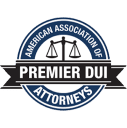
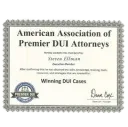
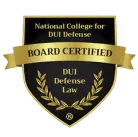


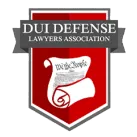








| Monday | Open 24 hours |
| Tuesday | Open 24 hours |
| Wednesday | Open 24 hours |
| Thursday | Open 24 hours |
| Friday | Open 24 hours |
| Saturday | Open 24 hours |
| Sunday | Open 24 hours |

| Monday | Open 24 hours |
| Tuesday | Open 24 hours |
| Wednesday | Open 24 hours |
| Thursday | Open 24 hours |
| Friday | Open 24 hours |
| Saturday | Open 24 hours |
| Sunday | Open 24 hours |

| Monday | Open 24 hours |
| Tuesday | Open 24 hours |
| Wednesday | Open 24 hours |
| Thursday | Open 24 hours |
| Friday | Open 24 hours |
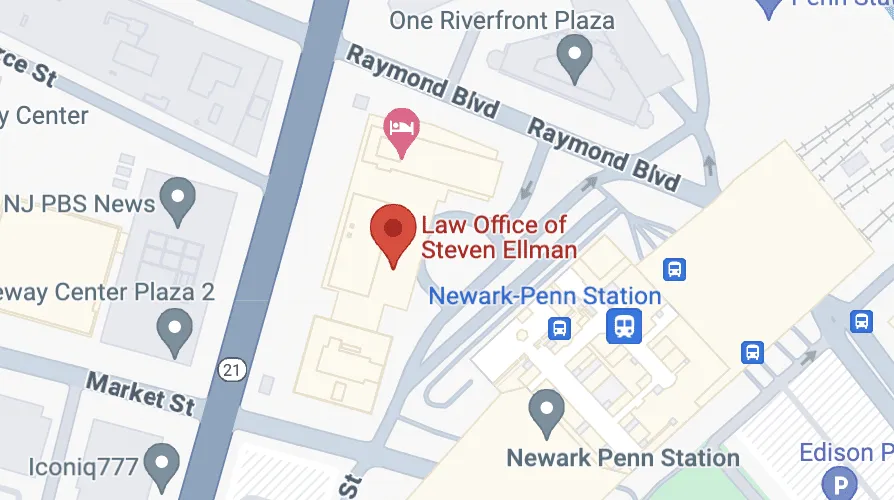
© 2024 All Rights Reserved. The Law Office of Steven Ellman